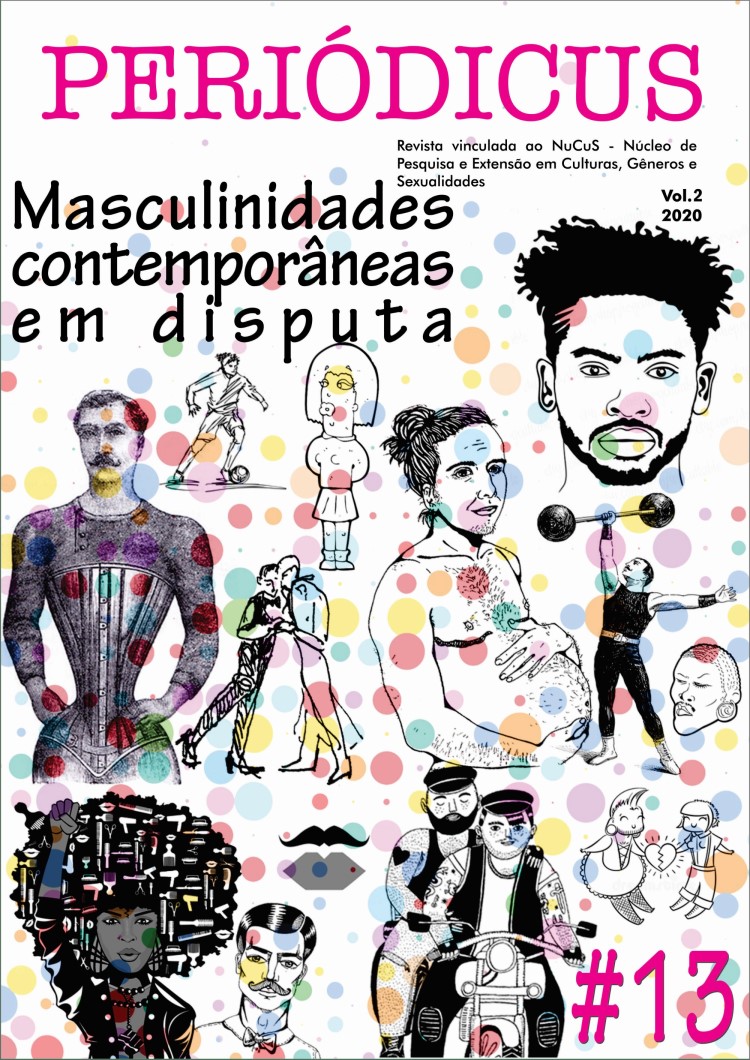O Respeito fica fora do armário: diferenças e afetações de pessoas LGBTQI+ na campanha de enfrentamento à homofobia da SEMDH/PB
DOI:
https://doi.org/10.9771/peri.v2i13.29266Resumo
Através de uma abordagem predominantemente qualitativa, o objetivo de presente artigo é discutir a campanha de combate à homofobia "Tire o respeito do armário" veiculada na rede social Facebook, desde 2012 pelo Espaço LGBTQI+ da Secretaria Estadual da Mulher e da Diversidade Humana da Paraíba (SEMDH/PB). Os materiais de divulgação da campanha veiculados no perfil da Secretaria no Facebook, somam 652 publicações, entre elas fotografias moldadas, cartazes, banners e informativos, os quais exploram e expõem figuras/imagens das pessoas LGBTQI+. Esse material foi analisado sob a ótica dos conceitos de homofobia, LGBTfobias, heterossexualidade compulsória e heteronormatividade. As referências teóricas utilizadas foram os trabalhos de Recuero (2009), Miskolci (2012; 2014), Colling e Nogueira (2015). As análises qualitativas mostraram que a homofobia é compreendida como uma forma de violência direcionada a todas as pessoas LGBTQI+, e não trata de violências genéricas. Ademais, percebe-se o envolvimento e o laço afetivo de pessoas LGBTQI+ com o material divulgado, fato que demonstra a necessidade de dar visibilidade a esse segmento da população.
Downloads
Downloads
Publicado
Como Citar
Edição
Seção
Licença
Copyright (c) 2020 Revista Periódicus

Este trabalho está licenciado sob uma licença Creative Commons Attribution-NonCommercial 4.0 International License.
Autores que publicam nesta revista concordam com os seguintes termos:
Autores mantêm os direitos autorais e concedem à revista o direito de primeira publicação, com o trabalho simultaneamente licenciado sob Licença Creative Commons Attribution Noncommercial que permite o compartilhamento do trabalho com reconhecimento da autoria e publicação inicial nesta revista, sendo vedado o uso com fins comerciais.
Autores têm autorização para assumir contratos adicionais separadamente, para distribuição não-exclusiva da versão do trabalho publicada nesta revista (ex.: publicar em repositório institucional ou como capítulo de livro), com reconhecimento de autoria e publicação inicial nesta revista.
Autores têm permissão e são estimulados a publicar e distribuir seu trabalho online (ex.: em repositórios institucionais ou na sua página pessoal) a qualquer ponto antes ou durante o processo editorial, já que isso pode gerar alterações produtivas, bem como aumentar o impacto e a citação do trabalho publicado (Veja O Efeito do Acesso Livre).








